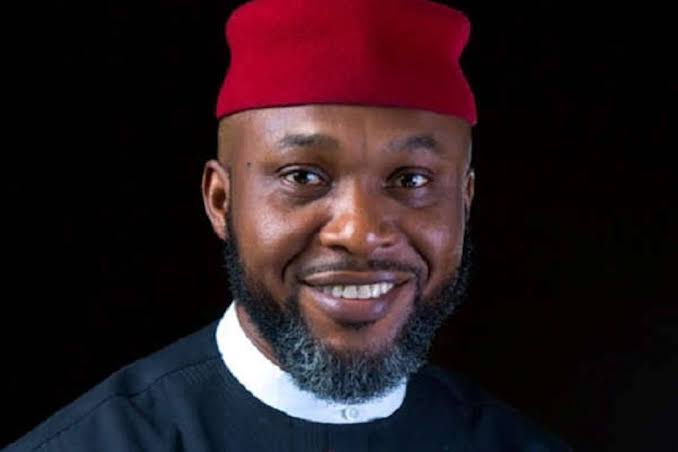Africa
Slapping the State: Nigeria’s Descent into Anarchy -By Osita Chidoka, Esq
I do not support the sanctification of misbehaviour. If the government cannot punish the offenders, they should not canonise them and, worse still, impose them on our collective psyche as “Ambassadors”. It is wrong. We must protect workers and promote the rule of law.

Nothing captures Nigeria’s progressive descent into lawlessness more starkly than the growing readiness of citizens to abuse and defy law enforcement officers. The recent incidents in the aviation sector, from physical altercations with crew to outright defiance of security protocols, are merely the visible crest of a deeper, more dangerous wave.
The logic is simple. Law enforcement officers are the most visible expression of state authority. An attack on them is a frontal challenge to sovereignty. Whether it is a celebrity blocking an aircraft, a passenger ignoring lawful orders from crew, or a traveller physically assaulting airport security, the effect is the same: the corrosion of the state’s capacity to maintain order.
None of these excuses the deep institutional rot that exists. Nigerian law enforcement can be officious, sometimes predatory. But the remedy is not mob defiance. It is due process. A nation that normalises violence against its agents will soon find the violence turned inwards, against itself.
As I watched the videos of the young lady in Ibom Air slap the crew and later the Aviation Security staff, I was appalled and personally felt affronted. When the musician who blocked an aircraft refused to move despite security staff’s efforts, I wondered if he would have done this at a foreign embassy in Nigeria, not to mention at a foreign airport. I have not heard of any Nigerian attacking or slapping a US embassy Nigerian security guard, even when they are obnoxious. We have lost faith in our institutions, but a resort to self-help is the surest route to collective anarchy.
During my tenure as Corps Marshal of the Federal Road Safety Corps (FRSC), I took a clear, uncompromising position: the moment a citizen attacked or obstructed an officer, the substance of the original grievance ceased to matter. That was no longer a traffic dispute; it was a direct assault on the Nigerian state. My response was equally unambiguous. Licences were withdrawn where the law permitted, offenders were charged in court, and vehicles were impounded. The Corps stood squarely behind its officers.
At the same time, we opened channels for accountability. We created the 122 emergency line for road crash reports and as a dedicated number for reporting officer misconduct. Public complaints, handled through the Corps’ robust disciplinary process, led to the dismissal of over 300 staff during my time. Military and Paramilitary disciplinary mechanisms are exacting, rigorous and fair; officers understand the consequences of misconduct. But once you cross the line into assault, the defence ends, and the law must speak.
On January 15 2025, in the United States, Captain David Allsop of Southwest Airlines was arrested and escorted out of the cockpit at Savannah/Hilton Head International Airport after Transportation Security Administration officers smelled alcohol on his breath. Within hours, he was removed from duty, charged with DUI, and suspended. The chain of accountability was swift, transparent, and uncompromising.
In Nigeria, however, serious breaches in aviation or public safety too often become drawn-out public dramas, where elite interference dilutes investigations and offenders are recast as “brand ambassadors.” This inversion of accountability erodes safety culture and signals that infractions are negotiable for the well-connected.
The federal government should resist treating these episodes as another 48-hour news cycle distraction. Every security and regulatory agency should publicly display and publicise redress hotlines. Officers should wear visible tags displaying the redress numbers and inform citizens of their right to complain. The Federal Ministry of Information and the National Orientation Agency (if it still exists) should mount a sustained campaign promoting lawful redress over physical confrontation.
Since the return to democracy 26 years ago, our collective restraint has steadily eroded. Official violence and a weakened criminal justice system have brutalised the national psyche. Rebuilding the rule of law cannot wait. The presidency, the National Assembly and the judiciary must recognise that each unpunished assault on an officer is not an isolated event, but a step further down the path towards state failure.
I do not support the sanctification of misbehaviour. If the government cannot punish the offenders, they should not canonise them and, worse still, impose them on our collective psyche as “Ambassadors”. It is wrong. We must protect workers and promote the rule of law.
The line between democracy and disorder is thinner than we imagine. And in Nigeria today, it is fraying.
Osita Chidoka is a former Minister of Aviation























